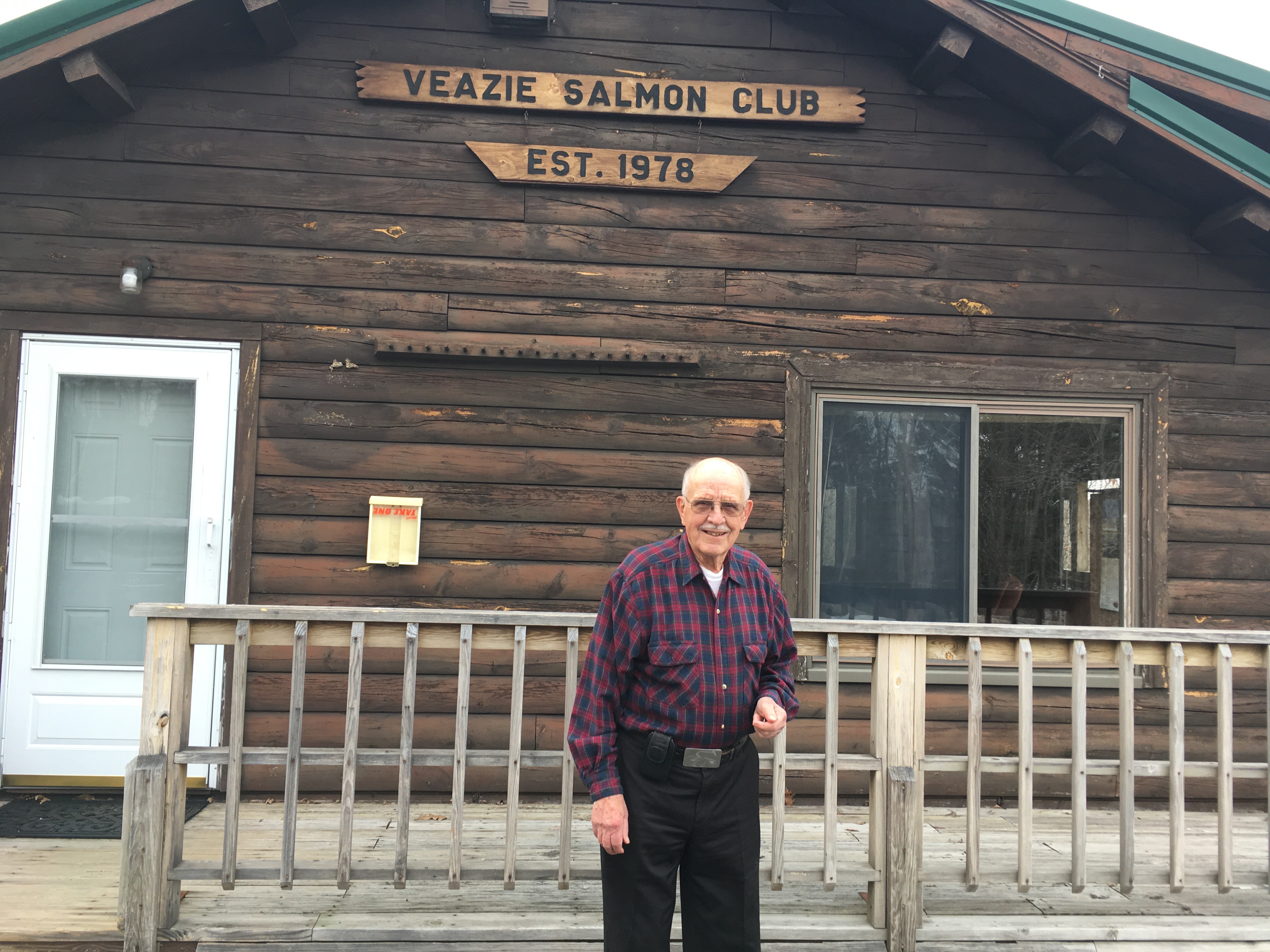Collecting The Disappearing Artifacts Of The Wild Atlantic Salmon

Claude Z. Westfall outside of the old Veazie Salmon Club. Photo by Caroline Lester for the New England News Collaborative
Atlantic salmon used to thrive in rivers and streams all across New England. But now the population of wild Atlantic salmon has essentially disappeared, dwindling down from the entire region to just in Maine. The wild Atlantic salmon is officially classified as an endangered species.
One man witnessed the decline firsthand. Claude Z. Westfall, a native of Orono, Maine, is 89-years-old, but he may be one of the best Atlantic salmon anglers alive.
Westfall is even part of the salmon’s former tradition. For eighty years, the first Atlantic salmon of the season caught in Maine was offered up to the President of the United States. In 1912, the first “Presidential Salmon” was offered to President William Taft. In 1992, Westfall caught an Atlantic salmon and gave it to President George H.W. Bush.
“We had Barbara Bush, my wife, Senator Snow, myself, [and] President Bush,” remembers Westfall. “And this was all held down in Kennebunkport. It was it’s hard to explain just how you feel. Because not too many people have that kind of an opportunity. They would go into Washington and within two or three minutes they were out. And here I had quite a long time to spend with him and so on. We kept in contact after that. And I invited him up to fish salmon on Ogden River up here. Because he loved to fish.” Westfall is officially credited as to being the last person alive to catch a presidential salmon.
The following year, Atlantic salmon stock declined, and the fishery became catch and release. Fishermen could no longer take salmon home, or to the White House.
For years, Westfall was president of the Veazie Salmon Club, a local organization that promoted Atlantic salmon fishing. But as the fish declined, so did membership, and eventually, the club shut down. Westfall is the curator of all the memorabilia left behind. He’s planning on donating it to a museum. But at the moment, it’s all in his basement. Every morning, he picks up a couple of his friends in his minivan and drives them down to the senior center for lunch. The rest of his day is devoted to the collection. “I’ve got to get it all in order. All of its got to be cleaned up,” he explains.
Atlantic salmon used to live in rivers all over New England. But dams, a changing ecosystem, and a challenging marine environment have all contributed to the fish’s decline. In 2017, federal officials counted just over 1,000 salmon returning to the entire East Coast. Westfall doesn’t believe the population will ever return to what it was. “You’ll never see it back in my opinion. But you see this is what’s so important about this. It’s important because there’s a lot of history here. It’d be a shame to lose this.”
Westfall says there have been rumblings about revitalizing the club. “Some would like to bring it back as a Salmon Club. But it can’t be done. It doesn’t make sense. You’re not going to see it. It’s over.” But the federal officials who monitor the fishery aren’t so sure. The National Oceanic and Atmospheric Administration has a plan to restore Wild Atlantic salmon to Maine. But it’ll take some time. They predict it will take about 75 years.
